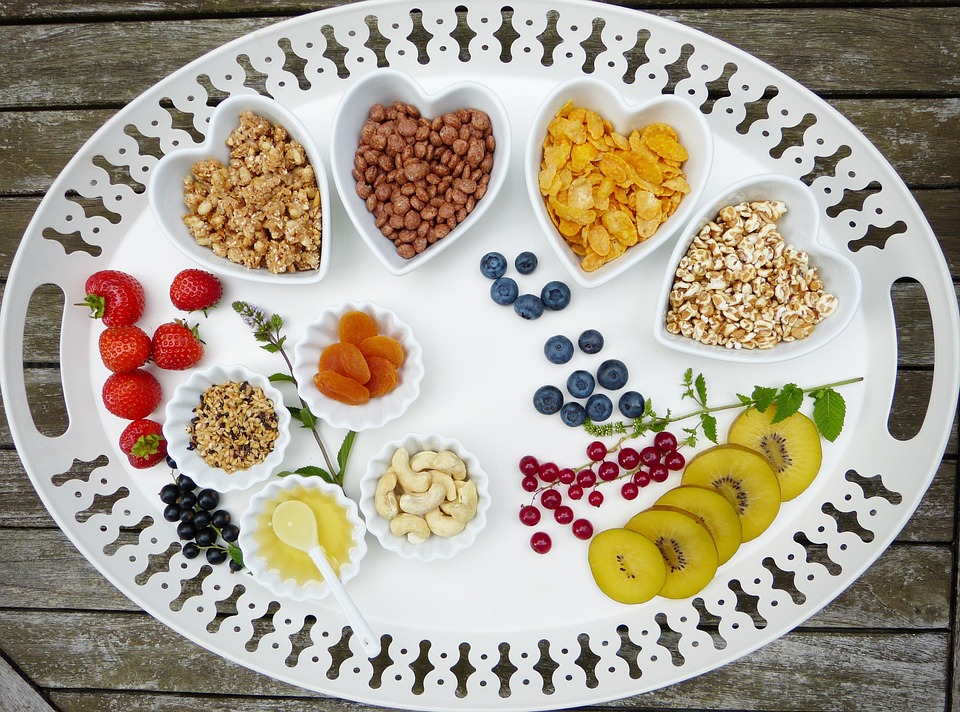Maintaining a balanced healthy diet is crucial to promoting overall wellness, boosting energy levels, and preventing chronic diseases. With so many food options available, it can be overwhelming to determine what constitutes a nutritionally sound diet. In this article, we’ll explore essential foods for a balanced healthy diet. By incorporating these foods into your meals, you can enhance your health, improve longevity, and cultivate a happier lifestyle.
Understanding a Balanced Diet
A balanced diet comprises a variety of nutrients that your body needs to function optimally. Commonly, this includes carbohydrates, proteins, fats, vitamins, and minerals. Research shows that a well-rounded diet helps support brain function, regulates blood sugar levels, and maintains healthy weight levels (Nutritional Guidelines 2020).
The Building Blocks of Nutrition
To achieve a balanced diet, it is essential to include a range of food groups:
- Fruits and Vegetables: Aim for at least five servings daily.
- Whole Grains: Opt for products like brown rice, quinoa, and whole wheat.
- Proteins: Include lean meats, legumes, nuts, and dairy.
- Healthy Fats: Incorporate sources such as avocados, olive oil, and fatty fish.
A variety of these foods can help ensure you meet your nutritional needs.
Essential Food Groups for a Healthy Diet
Fruits and Vegetables
Fruits and vegetables are rich in vitamins, minerals, and antioxidants, which can protect against illness. Research indicates that diets high in fruits and vegetables can lower the risk of heart disease and certain cancers (World Health Organization, 2021).
Benefits of Colorful Choices
Opt for a rainbow of colors on your plate. Each color generally represents different vitamins and nutrients:
- Red (tomatoes, strawberries): High in lycopene, beneficial for heart health.
- Green (spinach, broccoli): Rich in vitamins K and C, as well as fiber.
- Orange (carrots, sweet potatoes): Packed with beta-carotene, supporting eye health.
Aim for two to three servings of vegetables and two servings of fruit each day.
Whole Grains
Whole grains are a fantastic source of energy and contribute to digestive health. They are high in fiber, which helps maintain a healthy gut, reduces the risk of Type 2 diabetes, and supports heart health (American Heart Association, 2020).
Varieties to Consider
- Oats: A great breakfast option that can lower cholesterol.
- Quinoa: A complete protein, perfect for vegetarian or vegan diets.
- Brown Rice: A rich source of magnesium, which can improve bone health.
Incorporating whole grains into your meals can significantly enhance your nutrient intake.
Lean Proteins
Proteins are essential for muscle repair, hormone production, and overall body function. Lean protein choices help in maintaining muscle mass while also providing satiety.
Protein Sources
- Poultry: Chicken and turkey offer high protein with low fat.
- Fish: Salmon and tuna are excellent sources of omega-3 fatty acids, beneficial for heart health.
- Legumes: Lentils and chickpeas offer plant-based protein, fiber, and various vitamins and minerals.
Including a variety of protein sources can offer numerous health benefits.
Healthy Fats
Not all fats are created equal. Healthy fats, particularly monounsaturated and polyunsaturated fats, are beneficial for heart health and brain function.
Where to Find Healthy Fats
- Nuts and Seeds: Almonds and chia seeds provide essential fatty acids and protein.
- Avocados: Loaded with nutrients, they improve heart health and help in nutrient absorption.
- Olive Oil: A staple in the Mediterranean diet, it’s rich in antioxidants and anti-inflammatory properties.
Modifying your fat intake to focus on healthier options can improve your overall nutritional profile.
Putting It All Together
Incorporating these essential foods for a balanced healthy diet doesn’t mean you have to give up your favorite meals. It’s about making smart substitutions and adding variety.
- Plan balanced meals that include several food groups.
- Experiment with new recipes that use whole grains, lean proteins, and a colorful variety of fruits and vegetables.
- Consider meal prepping to ensure you have healthy options readily available.
By taking small steps towards a balanced diet, you can significantly impact your overall health.
Conclusion
Incorporating essential foods for a balanced healthy diet is vital for your physical and mental well-being. Focus on consuming a variety of fruits, vegetables, whole grains, lean proteins, and healthy fats to create nutritious meals that fuel your body. Remember that small, consistent changes can lead to lasting benefits.
Start today by examining your current diet, identifying areas for improvement, and gradually introducing these essential foods into your meals. Prioritize your health and make mindful, informed choices that nourish your body and promote a balanced lifestyle.
Frequently Asked Questions
What are some essential foods for a balanced healthy diet?
Essential foods include fruits, vegetables, whole grains, lean proteins, and healthy fats. Incorporating a variety from each category ensures you meet your nutritional needs.
How can I include more fruits and vegetables in my diet?
Try adding fruits and veggies to every meal. Blend them into smoothies, include salads as side dishes, or snack on fresh fruit between meals.
Why are whole grains important for a healthy diet?
Whole grains are high in fiber and essential nutrients, which can improve digestion, reduce the risk of chronic diseases, and help maintain a healthy weight.
What types of proteins should I focus on?
Lean proteins like chicken, turkey, and fish, as well as plant-based sources like beans and lentils, are excellent for building muscle and maintaining health.
Can healthy fats really benefit my heart?
Yes, healthy fats, such as those found in avocados, nuts, and olive oil, can help lower bad cholesterol levels and reduce the risk of heart disease.
How can I ensure I’m following a balanced diet?
Regularly assess your eating habits and aim to include a variety of foods from all essential food groups. Meal prepping and planning can also help in maintaining balance.








